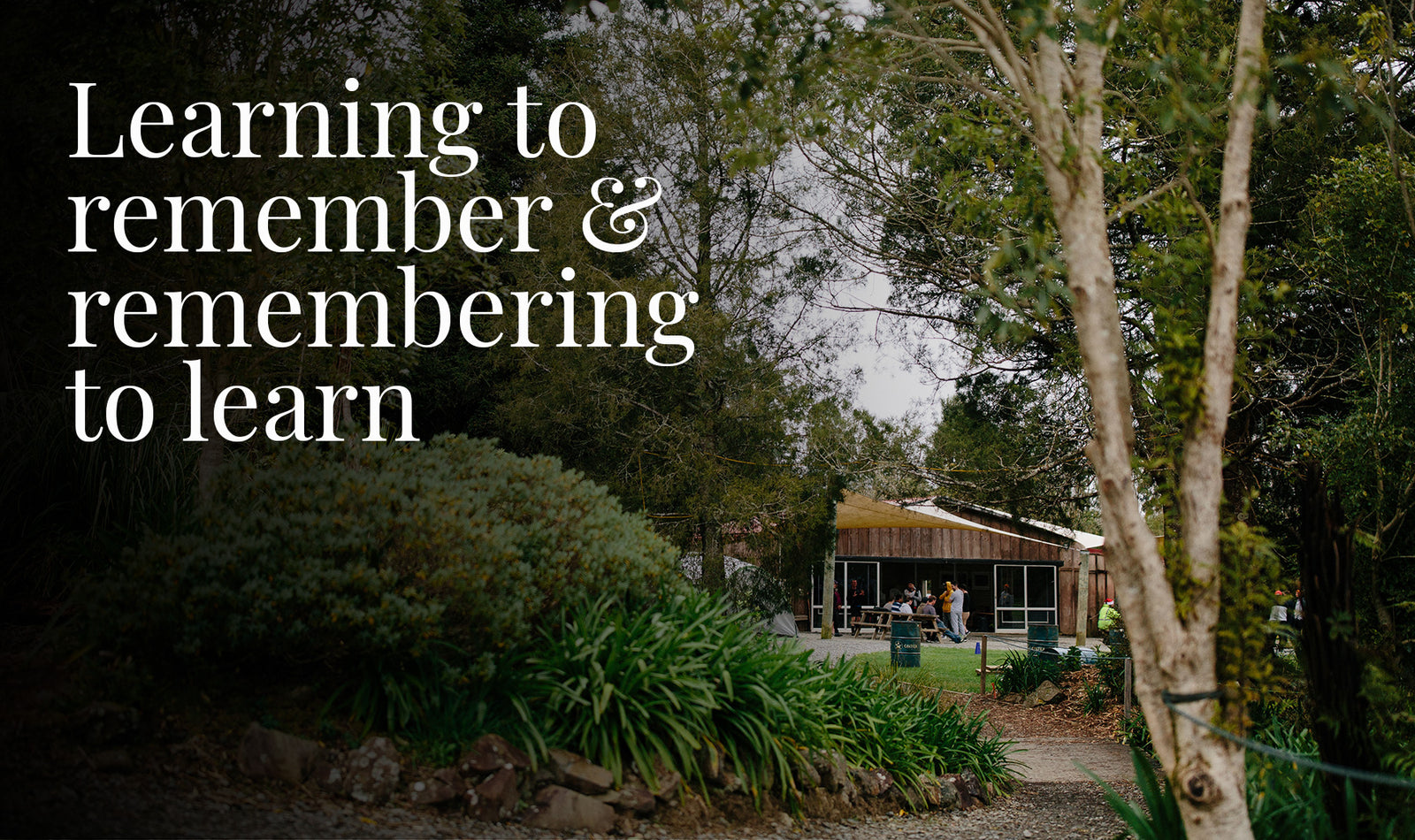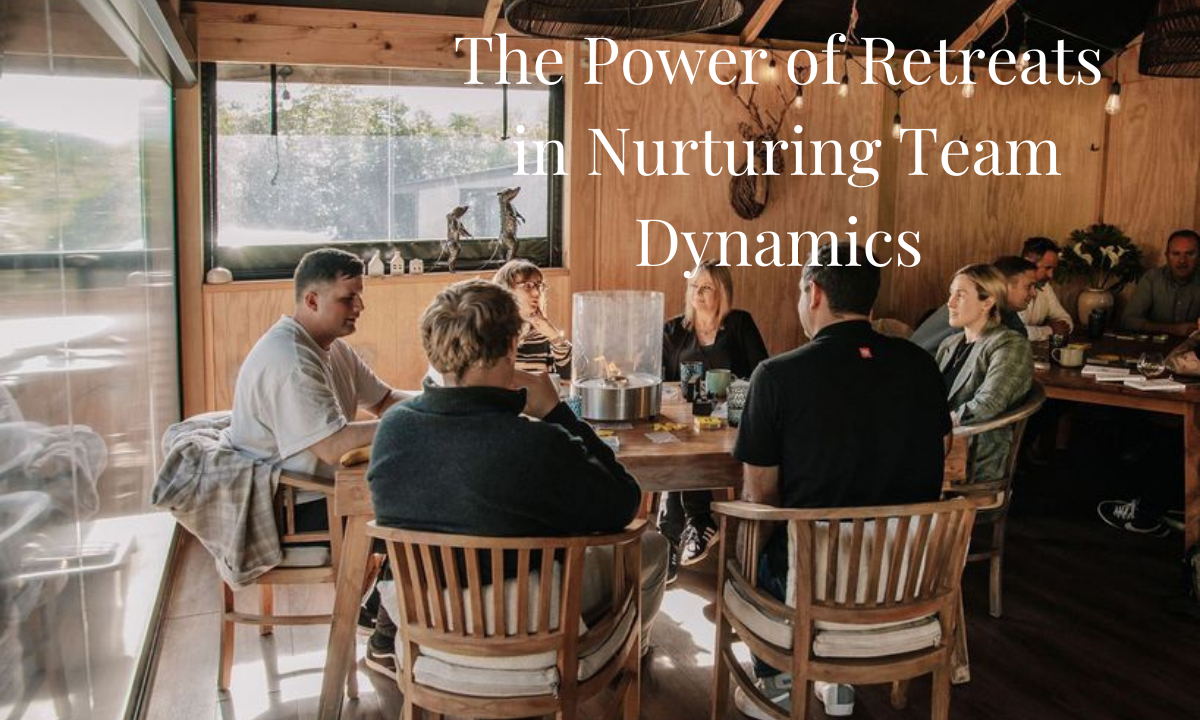
Some of you will still ponder the descriptor that I use, Experiential Architect. And yes, I do get some phone calls now and then asking for me to design amazing, interesting houses.
This particular ‘title’ came from a coaching moment with a fine Australian leadership coach, Dan Collins. We were at a Thought Leaders Conference -in Sydney some years ago, and Dan was helping me narrow down ‘what I did to help people’.
Explaining how I design programmes that use the wilderness and outdoors as the conduit for learning, I was sharing the magnificent change that occurs when you can increase or decrease the pressure on teams and individuals while experiencing a residential programme. Highlighting the need for squeeze points and then introducing moments to reflect, then how we reapply even greater pressure (time decisions, removing equipment, adding outcomes, generally mind-pheckn very carefully and in a planned and controlled way); Dan said, "so you design the rhythm of delivery, not just the content". And I said “just that Dan, we can adapt on the fly, where the breaks come, where we increase pressures, exactly at the right moment based on the physical and mental responses of the team learning with us”. “You’re an architect,” said Dan, “an experiential architect”. And since my vision statement is “to create experiences to inspire change”, the synergies were transparently clear and I adopted the descriptor ‘experiential architect’.
Learning occurs many ways, but Ebbinghausa German psychologist who pioneered the study of the memory, provided grand evidence that experiential learning, and the creating of a memory to anchor learning was, and still is, an incredibly successful way of establishing long term retention of information or lessons. Thus, his work complements my vision and purpose, to allow people beside whom we walk during training, to create a ‘memory hook’, the event or experience to which the learning is attached.
In lay-man’s terms: we can increase retention through repetitive exposure and the hippocampus (creates some types of memories and learning), will establish a memory and then ‘offload’ it as a long-term memory to another part of the brain; we can also establish a one-time catastrophic memory or learning event; the limbic fight or flight will have fired danger, death, mayhem, and our amygdala will make a long-term memory from a ‘one-off emotionally related event’.
Learning in an experiential way; stimulated by doing, seeing, smelling, touching, hearing vs. classroom whiteness and bright lights and droning dull facilitators; with repetition and the opportunity to immediately re-apply the lessons learned, will absolutely embed what you were trying to learn or remember.
This month I’m sharing Jeff Haden’s article from the Inc.com.So if you can’t come and join me in the wilderness just yet, he shares some simple tricks to retain that information. Enjoy.
Neuroscience and a Dose of Emotional Intelligence Reveal a Simple Trick to Learn More With Less Effort
Learning more efficiently is a matter of time--but not in the way you might think.
BY JEFF HADEN, CONTRIBUTING EDITOR, INC.@JEFF_HADEN
A producer for a television business show called and asked if I was available. He described the theme of the segment and asked if I had any ideas. I offered some possibilities.
"That sounds great," he said. "We're live in 30 minutes. And I need you to say exactly what you just said."
"Ugh," I thought. I'm not great at repeating exactly what I just said. So I started rehearsing.
Ten minutes later, he called to talk about a series he was developing. I almost asked him if we could postpone that conversation so I could use the time to keep rehearsing, but I figured since I had already run through what I would say two times, I would be fine.
Unfortunately, I was right. I was fine. Not outstanding. Not exceptional. Just ... fine. My transitions were weak. My conclusion was more like a whimper than a mic drop. And I totally forgot one of the major points I wanted to make.
Which, according to Hermann Ebbinghaus, the pioneer of quantitative memory research, should have come as no surprise.
Ebbinghaus is best known for two major findings: the forgetting curve and the learning curve.
The forgetting curve describes how new information fades away. Once you've "learned" something new, the fastest drop occurs in just 20 minutes; after a day, the curve levels off.

Wikimedia Commons
Yep: Within minutes, nearly half of what you've "learned" has disappeared.
Or not.
According to Benedict Carey, author of How We Learn, what we learn doesn't necessarily fade; it just becomes less accessible. In my case, I hadn't forgotten a key point; otherwise, I wouldn't have realized, minutes after, that I left it out. I just didn't access that information when I needed it.
Ebbinghaus would have agreed with Carey: He determined that even when we think we've forgotten something, some portion of what we learned is still filed away.
Which makes the process of relearning a lot more efficient.
Suppose that the poem is again learned by heart. It then becomes evident that, although to all appearances totally forgotten, it still in a certain sense exists and, in a way, to be effective. The second learning requires noticeably less time or a noticeably smaller number of repetitions than the first. It also requires less time or repetitions than would now be necessary to learn a similar poem of the same length.
That, in a nutshell, is the power of spaced repetition.

(Source:https://wildfirecomms-images.co.uk/img/ebbinghaus-diagram-1-1479295300.png)
The premise is simple. Learn something new, and within a short period of time you'll forget much of it. Repeat a learning session a day later, and you'll remember more.
Repeat a session two days after that, and you'll remember even more. The key is to steadily increase the time intervals between relearning sessions.
And -- and this is important -- to make your emotions work for you, not against you, forgive yourself for forgetting. To accept that forgetting -- to accept that feeling like you aren't making much progress -- is actually a key to the process.
Why?
- Forgetting is an integral part of learning. Relearning reinforces earlier memories. Relearning creates different context and connections. According to Carey, "Some 'breakdown' must occur for us to strengthen learning when we revisit the material. Without a little forgetting, you get no benefit from further study. It is what allows learning to build, like an exercised muscle."
- The process of retrieving a memory -- especially when you fail -- reinforces access. That's why the best way to study isn't to reread; the best way to study is to quiz yourself. If you test yourself and answer incorrectly, not only are you more likely to remember the right answer after you look it up, you'll also remember that you didn't remember. (Getting something wrong is a great way to remember it the next time, especially if you tend to be hard on yourself.)
- Forgetting, and therefore repeating information, makes your brain assign that information greater importance. Hey: Your brain isn't stupid.
So, what should I have done?
While I didn't have days to prepare, still. I could have run through my remarks once, taken a five-minute break, and then done it again.
Even after five minutes, I would have forgotten some of what I planned to say. Forgetting and relearning would have reinforced my memory since, in effect, I would have quizzed myself.
Then I could have taken another five-minute break, repeated the process, and then reviewed my notes briefly before we went live.
And I should have asserted myself and asked the producer if we could talk about the series he was developing later.
Because where learning is concerned, time is everything. Not large blocks of time, though. Not hours-long study sessions. Not sitting for hours, endlessly reading and rereading or practicing and re-practicing.
Nope: time to forget and then relearn. Time to lose, and then reinforce, access. Time to let memories and connections decay and become disorganized and then tidy them back up again.
Because information is only power if it's useful.
And we can't use what we don't remember.



